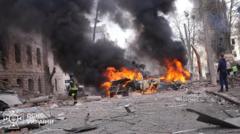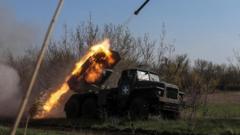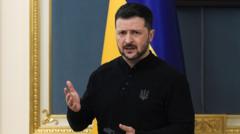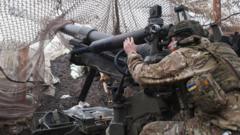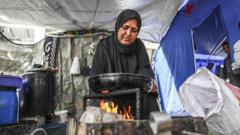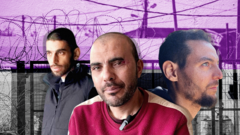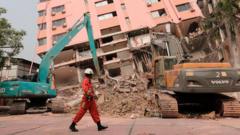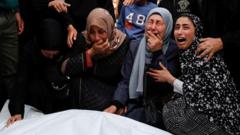In the wake of recent Israeli air strikes on a building linked to Hezbollah in a Beirut suburb, schools are bracing for future conflicts amidst chaos and trauma. Despite a ceasefire established last year, fears of renewed violence persist, affecting the community and the future of educational institutions.
Tensions Reignite in Beirut Suburbs as Israeli Strikes Spark Fear of Renewed Conflict
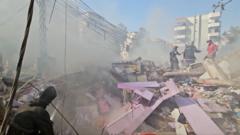
Tensions Reignite in Beirut Suburbs as Israeli Strikes Spark Fear of Renewed Conflict
Recent Israeli military action near schools in a Beirut suburb has caused widespread panic and raised fears of returning to a state of war, drastically affecting local communities and educational institutions.
Recent developments in Beirut's southern suburb have reignited concerns for residents, especially those connected to local schools, as renewed Israeli airstrikes have instigated panic and fear of escalating conflict. On a normal Friday afternoon, an emergency warning from the Israel Defense Forces (IDF) announced an imminent strike on a building identified as a Hezbollah facility, signaling the evacuation of nearby schools, including St Georges School, which serves about 1,000 students.
Ahmad Alama, the school's director, shared traumatic experiences from the chaos that ensued. Parents rushed to collect their children while others fled in fear. The school, located just meters from the impacted area, had to scramble to maintain order amid the panic, prompting the establishment of new emergency protocols to better handle potential threats in the future.
Despite the ceasefire reached in November after protracted conflict, Israeli airstrikes have persisted, targeting alleged Hezbollah interests in Lebanon. These recent strikes come after an incident involving rocket launches from southern Lebanon, which Israel claimed violated peace agreements. Meanwhile, Hezbollah distanced itself from such actions, further complicating the regional situation.
Resilience and adaptation have characterized the response of schools in affected areas. St Georges School is now conducting regular evacuation drills and refining communication strategies with parents to ensure children’s safety. Despite the fear, efforts also persist to provide students with normalcy through extracurricular activities designed to help alleviate their stress in these tumultuous times.
Burj High School, another institution in Dahieh, has similarly faced challenges with a drastic drop in enrollment, from 600 students to just around 100, as parents express hesitation in sending their children back amidst the remnants of destruction. The broad effects of the conflict are evident in the significant damage to surrounding infrastructure, with local schools sitting amidst rubble and persistent noise from reconstruction efforts.
While Hezbollah has offered limited support for those displaced by the violence, initiatives for rebuilding the destroyed infrastructure, estimated at $11 billion nationwide, remain mired in political conditions relating to peace and disarmament agreements that seem far from being met. In the meantime, as life in Dahieh slowly returns to its pre-war bustle, concerns about safety and stability haunt many residents and school leaders alike, bringing to the forefront the difficult challenge of rebuilding not just buildings, but the very fabric of community life.

